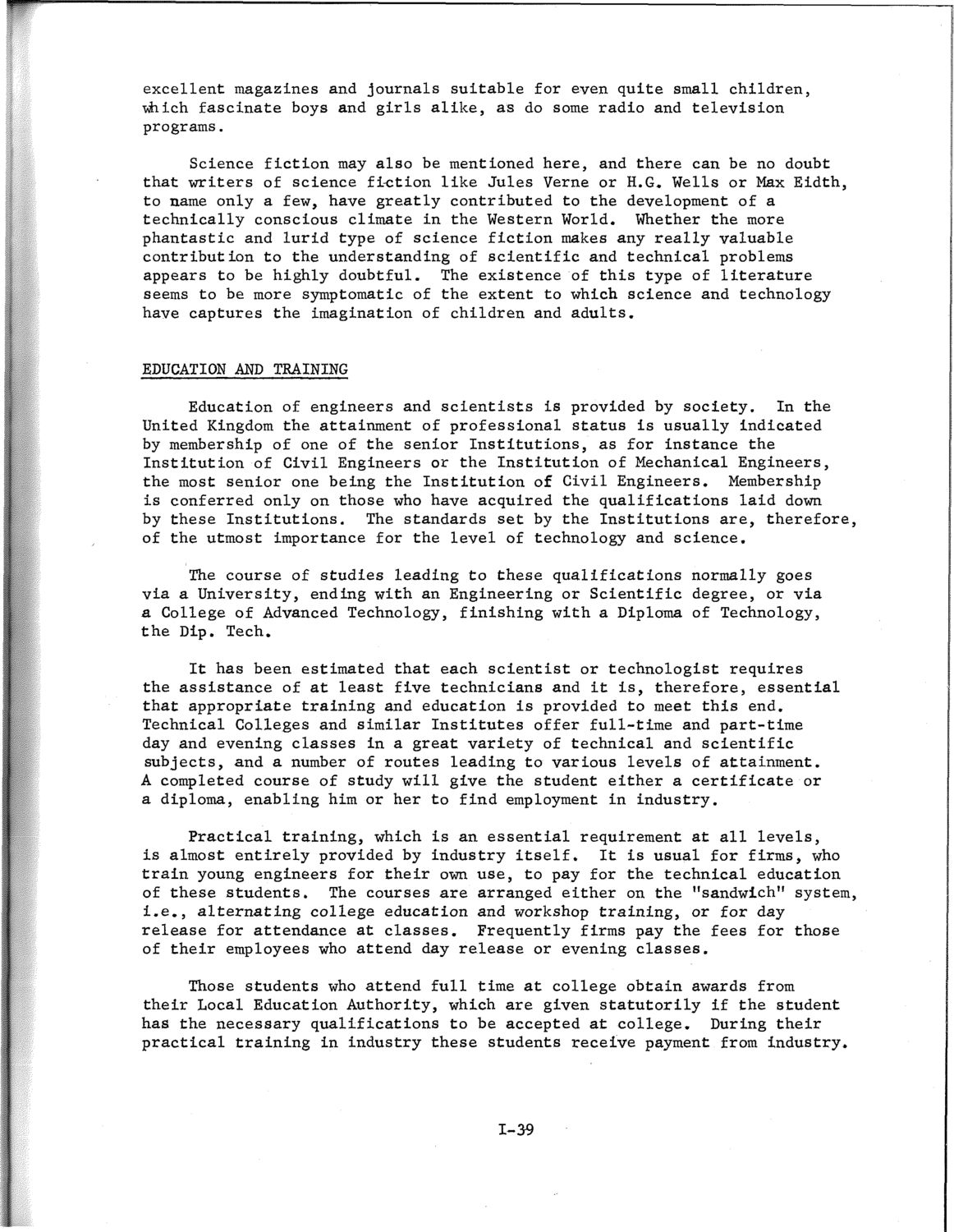| |
| |
Caption: SWE - Proceedings of the First International Conference of Women Engineers and Scientists
This is a reduced-resolution page image for fast online browsing.

EXTRACTED TEXT FROM PAGE:
excellent magazines and journals suitable for even quite small children, which fascinate boys and girls alike, as do some radio and television programs. Science fiction may also be mentioned here, and there can be no doubt that writers of science fiction like Jules Verne or H.G. Wells or Max Eidth, to name only a few, have greatly contributed to the development of a technically conscious climate in the Western World. Whether the more phantastic and lurid type of science fiction makes any really valuable contribution to the understanding of scientific and technical problems appears to be highly doubtful. The existence of this type of literature seems to be more symptomatic of the extent to which science and technology have captures the imagination of children and adults. EDUCATION AND TRAINING Education of engineers and scientists is provided by society. In the United Kingdom the attainment of professional status is usually Indicated by membership of one of the senior Institutions, as for instance the Institution of Civil Engineers or the Institution of Mechanical Engineers, the most senior one being the Institution of Civil Engineers. Membership is conferred only on those who have acquired the qualifications laid down by these Institutions. The standards set by the Institutions are, therefore, of the utmost importance for the level of technology and science. The course of studies leading to these qualifications normally goes via a University, ending with an Engineering or Scientific degree, or via a College of Advanced Technology, finishing with a Diploma of Technology, the Dip. Tech. It has been estimated that each scientist or technologist requires the assistance of at least five technicians and it is, therefore, essential that appropriate training and education is provided to meet this end. Technical Colleges and similar Institutes offer full-time and part-time day and evening classes in a great variety of technical and scientific subjects, and a number of routes leading to various levels of attainment. A completed course of study will give the student either a certificate or a diploma, enabling him or her to find employment in industry. Practical training, which is an essential requirement at all levels, is almost entirely provided by industry itself. It is usual for firms, who train young engineers for their own use, to pay for the technical education of these students. The courses are arranged either on the "sandwich" system, i.e., alternating college education and workshop training, or for day release for attendance at classes. Frequently firms pay the fees for those of their employees who attend day release or evening classes. Those students who attend full time at college obtain awards from their Local Education Authority, which are given statutorily if the student has the necessary qualifications to be accepted at college. During their practical training in industry these students receive payment from industry. 1-39
| |